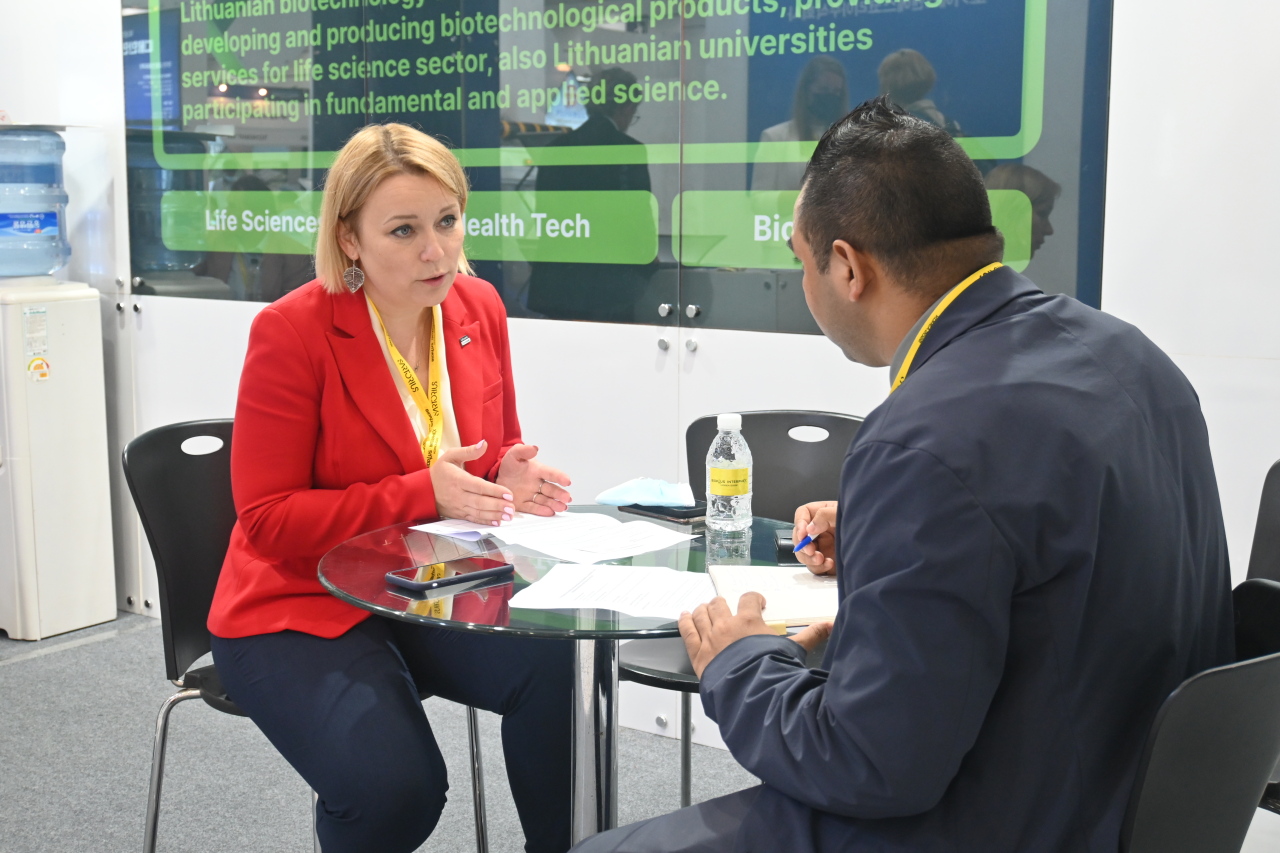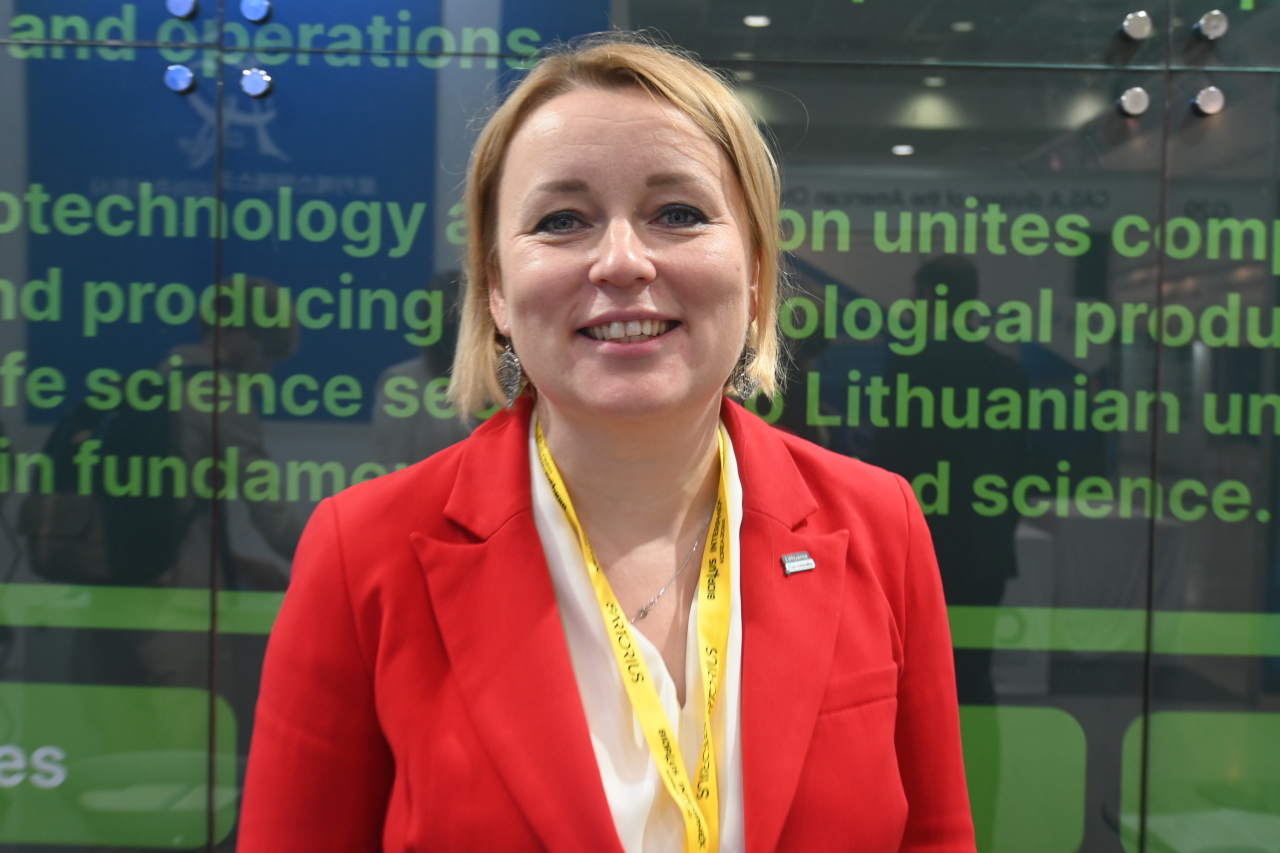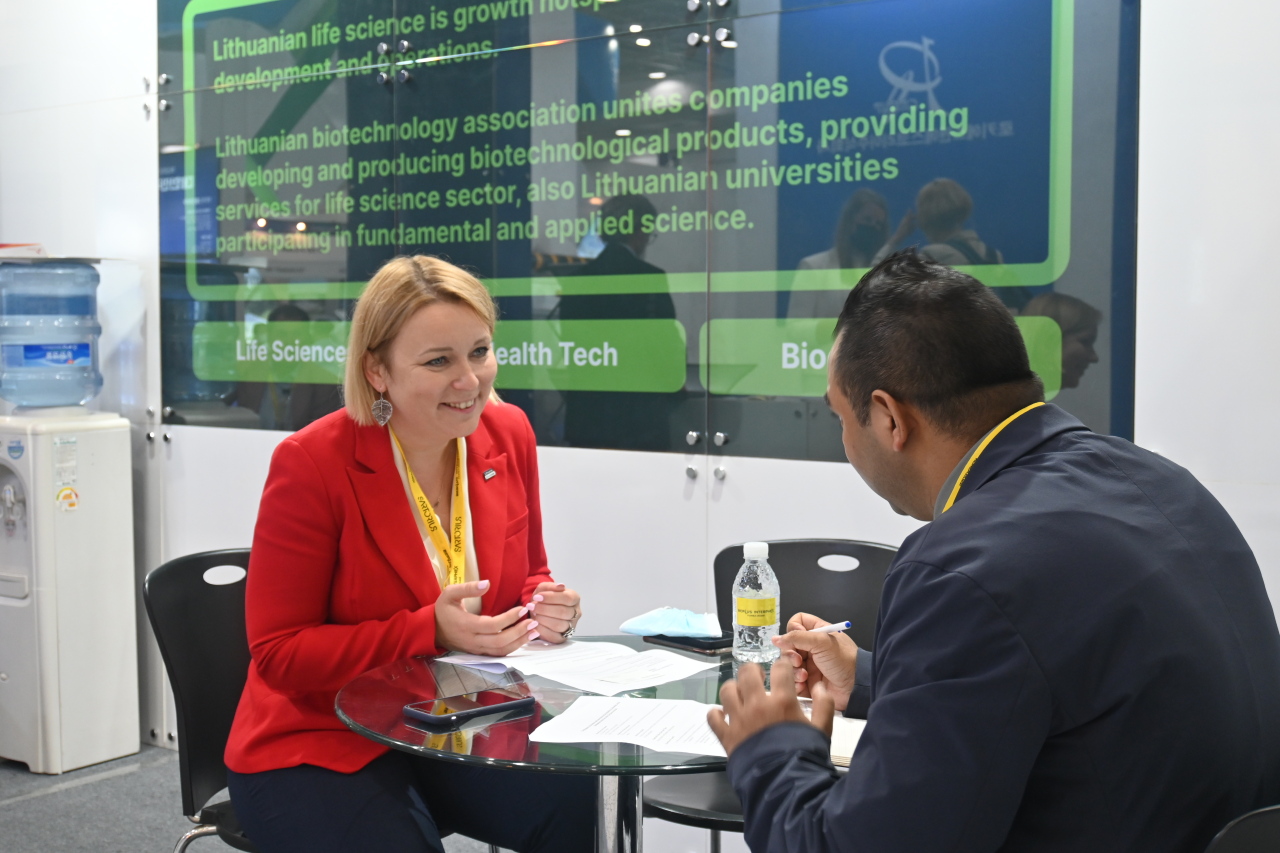
Lithuania’s Vice Minister of Economy and Innovation Jovita Neliupsiene discusses the potential of the life science industry in Lithuania during an interview with The Korea Herald at Coex in southern Seoul on Aug. 3. (Sanjay Kumar/The Korea Herald)
Lithuania is looking for joint projects with Korea in life-science technology, drug development, and gene editing to accomplish complementary benefits, Lithuania’s Vice Minister of Economy and Innovation Jovita Neliupsiene said during a recent interview with The Korea Herald.
“Korean companies could find a friendly, business-oriented environment to start or to look for opportunities in Europe in life sciences, ICT, smart engineering, and high-value manufacturing,” Neliupsiene stressed.
The life science sector in Lithuania is divided into two major subsectors: biotechnology and medical devices. Over 100 life science companies are active in manufacturing or research and development in Lithuania, Neliupsiene said.
Neliupsiene visited Seoul to attend Bioplus-Interphex Korea 2022, a bio-pharmaceutical exhibition and conference from Aug. 3-5, where she presented Lithuanian businesses to Korean institutions of biotechnology and health science development to generate concrete cooperation and joint projects.
According to Neliupsiene, Lithuania’s prospects in vaccine and drug development appear less known in Korea, saying that components of Pfizer’s COVID-19 vaccine are produced in Lithuania.
Lithuania’s Biotech and life-science sector recently grew 13-16 percent annually, according to Neliupsiene.
Citing recent achievements by Lithuanian scientists and companies, such as Virginijus Siksnys, a Lithuanian scientist who helped develop CRISPR-Cas9 gene-editing technology, Neliupsienev said that her country represents ample opportunities for cooperation in related fields.
She recommended ICT as another key sector, citing Lithuania’s Wi-Fi speed, and cybersecurity as major positive factors.

Caption 001: Lithuania’s Vice Minister of Economy and Innovation Jovita Neliupsiene speaks during an interview with The Korea Herald at Coex in southern Seoul on Aug. 3. (Sanjay Kumar/The Korea Herald)
"Most of the ICT innovations actually come from startups,” she said, urging Korean companies to utilize Lithuania’s accelerators and sandbox knowledge.
“Lithuania has a population of 2.8 million but has more than a thousand startups with a higher rate of success than the European average,” emphasized Neliupsienev, who also served as Lithuania’s Permanent Representative to the EU from 2015-2020.
According to Neliupsiene, the value of Lithuanian startups was at about 500 million euros ($507 million), but now the figure stands at 9 billion euros.
Neliupsiene introduced the Lithuanian e-residency program that grants online access to administrative, public, and commercial services.
“Lithuania started an online e-residency program to offer open access to digital public services, provide data, declare taxes and register for schools and companies to bring foreign talents and businesses,” said Neliupsiene.
“With e-residency, one can register a company in Lithuania without coming to Lithuania,” said Neliupsiene.

Lithuania’s Vice Minister of Economy and Innovation Jovita Neliupsiene introduces Lithuania’s e-residency program in an interview with The Korea Herald at Coex in southern Seoul on Aug. 3. (Sanjay Kumar/The Korea Herald)
She said that the Lithuanian government also offers financial incentives and government compensation to foreign companies working and investing in biotech, smart technology, engineering or ICT.
“It’s a direct payoff with terms and conditions such as negotiations and investment contracts,” she said
Lithuania adopted new regulations in 2021 which state that if a foreign company invests 20-30 million euros and employs 100-150 employees, it gets the status of a large investment project, according to Neliupsiene.
Incentives include 20 years of corporate tax exemption, discounts on public land and fast-track access to all the administrative procedures, Neliupsiene said.
She said that the Lithuanian government offers a dedicated project manager for every big investment project. This project manager helps facilitate shortened procedures to make a business grow effectively.
“In Lithuania, it takes only 24 hours to establish a company,” Neliupsiene said.
“Lithuania is a small country with a small administration that helps us to be more flexible,” she added, citing shorter procedures for banking and fintech license issuance compared to other European countries. They also have a sandbox system for accessing data information and frameworks of the financial sector before starting a business and receiving a license.
“Lithuania is No.1 in the fintech industry in Europe after Brexit and No. 10 in the global ratings,” said Neliupsiene.
“Come and see Lithuania,” she said, urging Korean companies to see the country’s strong biotech ecosystem, world-class short pulse lasers, and little-known but well-developed space technologies, such as small satellites.
“In Lithuania, really beautiful nature is combined with Baroque style architecture and many, many research centers reachable in an hour or a couple of hours,” she said.








![[Graphic News] More Koreans say they plan long-distance trips this year](http://res.heraldm.com/phpwas/restmb_idxmake.php?idx=645&simg=/content/image/2024/04/17/20240417050828_0.gif&u=)